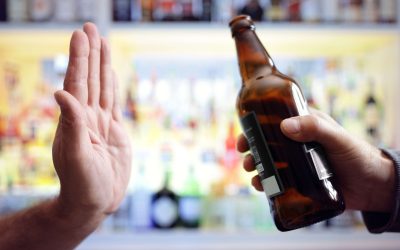Alcohol dependence Wikipedia
Additionally, the presence of co-occurring mental health disorders can complicate the diagnostic picture, making it essential to conduct a comprehensive assessment that considers the full range of an individual’s symptoms and experiences. This theory proposes that individuals turn to alcohol as a means of coping with underlying psychological distress or mental health issues. In essence, alcohol becomes a form of self-prescribed medication, providing temporary relief from emotional pain or anxiety. Studies have shown that individuals with a family history of alcoholism are at a higher risk of developing the disorder themselves. This genetic component isn’t a single “alcoholism gene,” but rather a complex interaction of multiple genes that influence how the body processes alcohol and how the brain responds to its https://ulurtangan.com/goodbye-letter-to-my-drug-addiction/ effects. Shattering lives and tearing families apart, Alcohol Use Disorder (AUD) remains a formidable adversary, its psychological underpinnings holding the key to unlocking effective interventions and fostering lasting recovery.
Follow us on social media
This is why, upon enrolling at an addiction treatment center, you will complete an assessment that will gain an understanding of your physical and psychological symptoms. Outpatient treatment programs allow individuals to receive treatment while living at home and continuing their daily activities. These programs encompass regular therapy sessions, support groups, and counseling. Outpatient treatment is effective for individuals with mild to moderate alcohol addiction who do not require 24-hour care.
How alcohol detox promotes mental clarity and emotional healing
- It can include feelings of compulsion, obsession, and preoccupation with obtaining and using substances.
- A Denver native and lifelong Colorado resident, Megan embarked on her academic journey at the University of Northern Colorado.
- We cannot guarantee payment or verification eligibility as conveyed by your health insurance provider will be accurate and complete.
- This is bad news for individuals who believe they are safe from addiction because the substances they use are not known to cause chemical dependence.
Psychological addiction refers to a compulsive urge or craving for a substance, in this case, alcohol, due to the pleasurable or rewarding effects it produces. It is primarily driven by psychological and emotional factors, rather than solely relying on physical dependency. Individuals who are psychologically addicted to alcohol often find it difficult to control physiological dependence on alcohol or stop their consumption despite negative consequences.

How to Transition from Benzodiazepine Detox to Comprehensive Addiction Treatment
- Addressing both psychological and physical dependence is crucial for effective treatment of substance use disorders.
- As a psychoactive substance, alcohol has the power to modify our mood, cognition, and behavior.
- The damage may be physical (e.g. hepatitis) or mental (e.g. depressive episodes secondary to heavy alcohol intake).
- But someone who is psychologically dependent on alcohol might find that they can’t go for more than a few hours without drinking and that their life revolves around getting and using alcohol.
Over time, neurons adjust their chemistry, so sudden cessation triggers withdrawal symptoms. Your nervous system, once calmed by alcohol’s effects on GABA receptors, responds with hyperarousal, manifesting as tremors, sweating, and increased heart rate. Medical detox under clinical supervision is often necessary to manage these withdrawal symptoms safely and prevent complications like seizures or delirium tremens.
This strong association between conduct disorder and substance-use disorders is considered to be reciprocal, with each exacerbating the expression of the other. Conduct disorder usually precedes or coincides with the onset of substance-use disorders, with conduct disorder severity found to predict substance-use severity. However, those young people with ADHD and co-occurring conduct or bipolar disorders are at highest risk of development of substance-use disorders.

Examples of behavioral treatments are brief interventions and reinforcement approaches, treatments that build motivation and teach skills for coping and preventing a return to drinking, and mindfulness-based therapies. The first category of costs is that of treating the medical consequences of alcohol misuse and treating alcohol misuse. The second category of health-related costs includes losses in productivity by workers who misuse alcohol. The third category of health-related costs is the loss to society because of premature deaths due to alcohol misuse.

When you miss your morning cup, you might develop physical withdrawal symptoms, like a headache, fatigue, difficulty concentrating, and more. When addiction is related to drugs or alcohol, the condition is also called a substance use disorder. It could include prescription drugs, over-the-counter products, street drugs, alcohol, even nicotine. The reality is that alcohol addiction is neither purely physical nor solely psychological, it’s a combination of both. The physical dependency creates a biological need for alcohol, while the psychological factors drive the craving for the emotional alcoholism relief that alcohol seems to provide. This duality makes treating alcohol addiction particularly challenging, as both aspects need to be addressed for a successful recovery.

